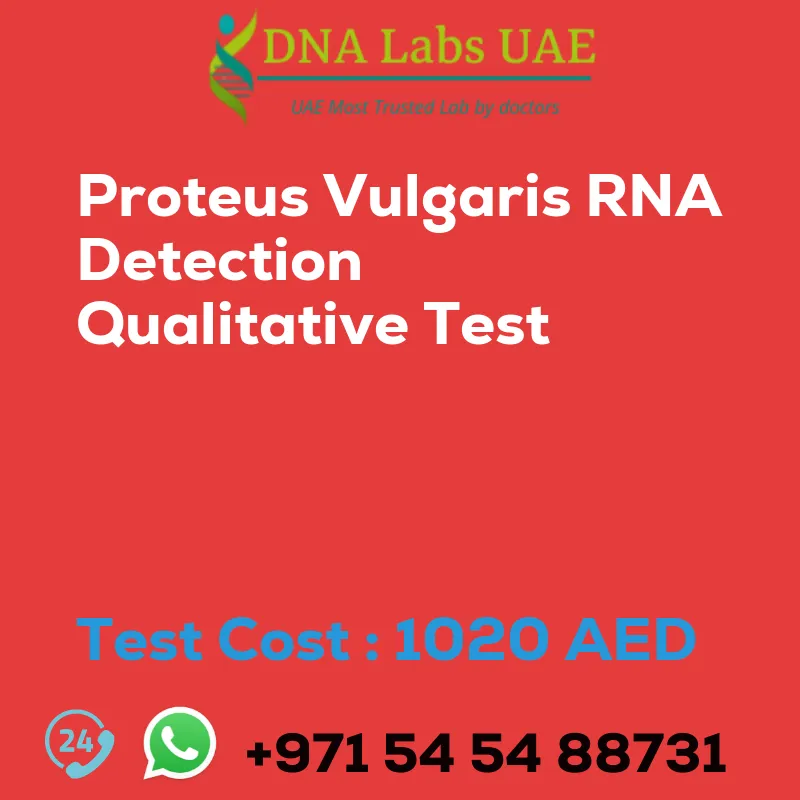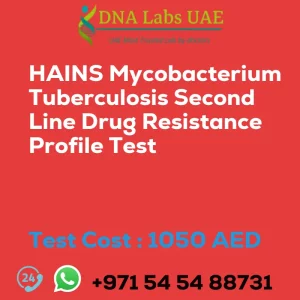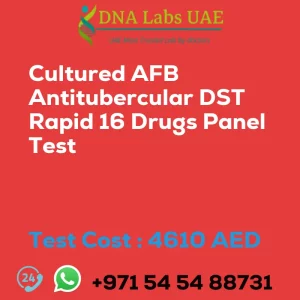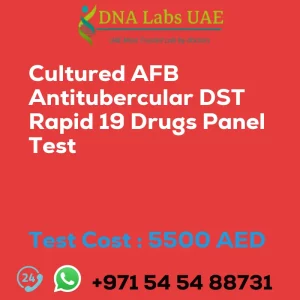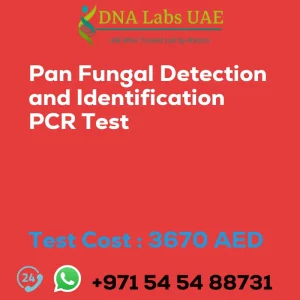Proteus Vulgaris RNA Detection Qualitative Test
At DNA Labs UAE, we offer the Proteus Vulgaris RNA Detection Qualitative Test to help diagnose and detect the presence of Proteus vulgaris RNA in samples. This test is performed using the real-time reverse transcription-polymerase chain reaction (RT-PCR) method, which provides accurate and reliable results.
Test Details
The Proteus Vulgaris RNA Detection Qualitative Test is designed to detect the presence of Proteus vulgaris RNA in various sample types, including urine and stool. The test is performed in our Genetics department by our team of skilled physicians and laboratory technicians.
Test Components and Price
The cost of the Proteus Vulgaris RNA Detection Qualitative Test is AED 1020.0. This includes all necessary components and materials required for the test.
Sample Condition
We accept urine and stool samples for this test. It is important to ensure that the samples are collected and transported according to the provided guidelines to maintain sample integrity.
Report Delivery
Once the test is performed, the report will be delivered via email within 4 working days. For urgent cases, we also offer the option to receive the report via phone within 36 hours.
Test Method
The Proteus Vulgaris RNA Detection Qualitative Test is performed using the real-time reverse transcription-polymerase chain reaction (RT-PCR) method. This method allows for the detection and amplification of the RNA sequence specific to Proteus vulgaris.
Pre Test Information
Prior to undergoing the Proteus Vulgaris RNA Detection Qualitative Test, patients are required to sign a consent document. It is also recommended to provide any relevant clinical history of the patient related to Proteus vulgaris.
Procedure
The following is a general outline of the procedure for the Proteus Vulgaris RNA Detection Qualitative Test:
- Sample Collection: Collect a sample suspected to contain Proteus vulgaris, such as a clinical specimen, environmental sample, or food sample.
- RNA Extraction: Extract the RNA from the sample using a suitable RNA extraction kit or method. This step is crucial to isolate the RNA from other cellular components.
- Reverse Transcription: Convert the extracted RNA into complementary DNA (cDNA) using a reverse transcription reaction. This reaction is catalyzed by the reverse transcriptase enzyme, which synthesizes cDNA from the RNA template.
- PCR Setup: Prepare the PCR reaction mixture containing the template cDNA, specific primers targeting the RNA sequence of Proteus vulgaris, and the PCR master mix.
- PCR Amplification: Perform PCR amplification using a thermal cycler. The PCR program consists of denaturation, annealing, and extension steps repeated for several cycles.
- Gel Electrophoresis: Analyze the PCR products using agarose gel electrophoresis. Load the PCR products onto an agarose gel and run an electric current through the gel to separate the DNA fragments based on their size. Visualize the DNA bands using a DNA stain.
- Interpretation: If the PCR amplification produces a band of the expected size, it indicates the presence of Proteus vulgaris RNA in the sample. Absence of the band suggests the absence of the target RNA sequence.
It is important to note that this is a general outline of the procedure, and specific details may vary depending on the laboratory protocols, primers used, and the specific detection system employed. It is recommended to follow appropriate biosafety guidelines and consult with a qualified microbiologist or molecular biologist for accurate and reliable testing.
| Test Name | Proteus Vulgaris RNA Detection Qualitative Test |
|---|---|
| Components | |
| Price | 1020.0 AED |
| Sample Condition | urine, stool |
| Report Delivery | 4th Working Day Email : 48 hours.On phone : 36 hours |
| Method | Real Time RT- PCR |
| Test type | Viral |
| Doctor | Physician |
| Test Department: | Genetics |
| Pre Test Information | Need to sign Consent document and bring any clinical history of patient forProteus Vulgaris (RNA Detection) QualitativeTest |
| Test Details |
To perform a qualitative test for the detection of Proteus vulgaris RNA, you can use the reverse transcription-polymerase chain reaction (RT-PCR) method. Here is a general procedure for the test: 1. Sample Collection: Collect a sample suspected to contain Proteus vulgaris, such as a clinical specimen, environmental sample, or food sample. 2. RNA Extraction: Extract the RNA from the sample using a suitable RNA extraction kit or method. This step is crucial to isolate the RNA from other cellular components. 3. Reverse Transcription: Convert the extracted RNA into complementary DNA (cDNA) using a reverse transcription reaction. This reaction is catalyzed by the reverse transcriptase enzyme, which synthesizes cDNA from the RNA template. 4. PCR Setup: Prepare the PCR reaction mixture containing the following components: – Template cDNA: The cDNA obtained from the reverse transcription step. – Primers: Design and use specific primers that target the RNA sequence of Proteus vulgaris. These primers should anneal to regions within the target RNA sequence. – PCR Master Mix: A mixture containing DNA polymerase, nucleotides, and buffer required for PCR amplification. 5. PCR Amplification: Perform PCR amplification using a thermal cycler. The PCR program typically consists of denaturation, annealing, and extension steps repeated for several cycles. The specific conditions, such as temperature and cycle number, depend on the primers used and the PCR protocol. 6. Gel Electrophoresis: After PCR amplification, analyze the PCR products using agarose gel electrophoresis. Load the PCR products onto an agarose gel and run an electric current through the gel to separate the DNA fragments based on their size. Visualize the DNA bands using a DNA stain. 7. Interpretation: If the PCR amplification produces a band of the expected size, it indicates the presence of Proteus vulgaris RNA in the sample. Absence of the band suggests the absence of the target RNA sequence. It is important to note that this is a general outline of the procedure, and specific details may vary depending on the laboratory protocols, primers used, and the specific detection system employed. Additionally, it is recommended to follow appropriate biosafety guidelines and consult with a qualified microbiologist or molecular biologist for accurate and reliable testing. |

